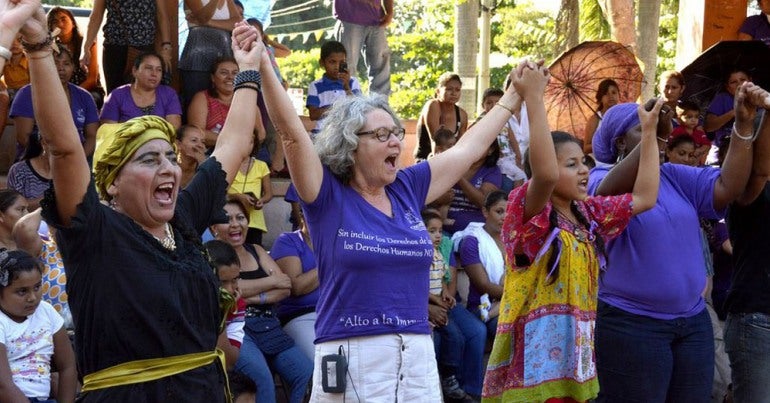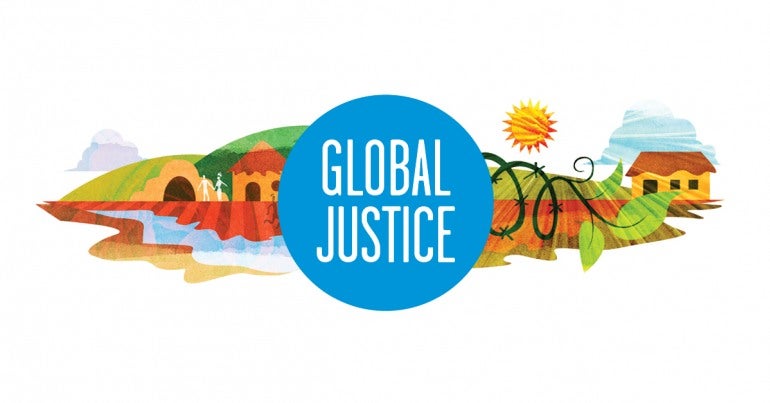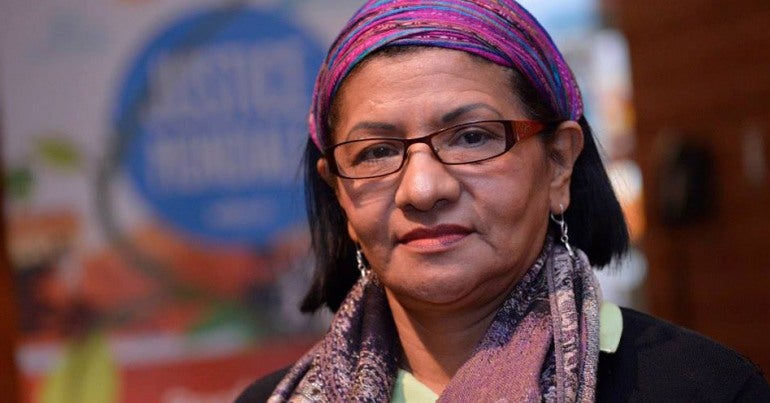 International trade and investment
International trade and investment
Unions and social movement groups from Mexico, US and Canada met in Montreal in 2018 to raise concerns about the ongoing re-negotiation of NAFTA. CUPE is a member of Common Frontiers, the Trade Justice Network and the Réseau québecois sur l’intégration continentale (RQIC) coalitions that organized and participated in this meeting. The meeting brought together groups who have been working together since the inception of NAFTA in the early 1990s and who have long criticized the agreement from the perspective of workers, farmers, Indigenous people, women, environmentalists, and human rights defenders.
Civil society groups amplified their call for a NAFTA replacement that would genuinely improve peoples’ livelihoods and protect the environment in all three countries. They further committed to forging and strengthening their solidarity across borders, something deemed particularly urgent for the labour movement in Mexico.
Workers in Mexico work the longest hours for the lowest pay among all countries in the Organization for Economic Co-operation and Development (OECD). NAFTA has done nothing to raise their standard of living. On the contrary, NAFTA is forcing many into precarious informal work or to migrate out of the country in search of decent work. Mexican workers desperately need legislation that guarantees their right to freedom of association and collective bargaining. They are fighting hard against proposed legislation that will weaken workers’ rights by locking in low wages and poor working conditions, and undermine efforts to negotiate collective agreements.
In Canada, the Trudeau government is continuing the Harper government’s policy of pursuing free trade agreements with as many other countries as possible. In addition to NAFTA, several other major deals are currently in the pipeline, including with China, India and with a group of nations in Latin America that will be known as MERCOSUR. The government is paying lip-service to the groundswell of opposition to these trade deals by promising to make them “progressive” by including enforceable chapters on labour rights, the environment, women’s rights and Indigenous rights. But the truth is that none of this has panned out in the negotiations so far. The Canada-Chile agreement is one of the only trade agreements with a gender chapter, and it demonstrates how ineffective it is to try to use trade agreements to change social policy.
There is a groundswell of opposition to free trade agreements. By uniting in our opposition, we will have a greater impact. Fair trade, not free trade, is what is needed.
 Public Services International (PSI) 30th World Congress
Public Services International (PSI) 30th World Congress
People Over Profit was the theme of the Public Services International 30th World Congress in Geneva, Switzerland. CUPE has been an active affiliate of PSI for over 50 years and participated in the global gathering in November 2017.
Public Services International (PSI) is a global trade union federation representing over 20 million women and men working in public services around the world. They represent more than 650 unions in 148 countries and territories.
The World Congress was an opportunity for leaders and activists to come together to share strategies and build unity to promote quality public services and defend trade union rights. Delegates adopted a Program of Action that sets out objectives for the next five years. The focus is on defending strong democratic states and an inclusive society that is committed to ensuring gender equality, respect and dignity for all. The plan argues for the pursuit of economic development for the benefit of all, the redistribution of wealth, and strengthened workers’ power.
CUPE’s resolution on Canada’s Anti-Terror Act 2015 (Bill C-51) was well received by the congress. Governments around the world have used the “war on terror” to justify their violation of civil liberties and restrictions on the right to protest. The experiences of our allies in countries such as Colombia, the Philippines, and Turkey show that trade unionists who are fighting against union busting are labelled as national security threats. The same is true for Indigenous activists who are threatened because they are resisting multinational mining companies who are stealing their land. Brother Mark Hancock told congress delegates that “we stand firmly in favour of the right of every individual to organize and take part in peaceful protest – not just in Canada, but around the world.”
United Nations Commission on the Status of Women (UNCSW)
This past March, CUPE joined an international labour delegation to the United Nations Commission on the Status of Women in New York City. The delegation called on governments across the world to make meaningful commitments to gender equality and women’s rights.
They lobbied governments to include labour’s priorities in the Agreed Conclusions, a document of commitments which they negotiate at the meeting. Union women’s input is critical in this process given the influence of corporate and conservative interests in the UN system.
The delegation worked to ensure commitments by governments to uphold core labour rights, including the right to organize and form a union, the right to bargain collectively and the right to equal pay for work of equal value. Although these rights are protected in Conventions of the International Labour Organization (ILO), governments need to do much better in upholding them.
Delegates advocated for strong commitments to quality public services, like child care, education and health care, and progressive government taxation systems to support them. Candace Rennick, CUPE Regional Vice-president from Ontario, delivered a presentation on the Time to Care campaign for long-term care services. The campaign is one example of unions fighting for quality public services. The presentation highlighted how women are disproportionately affected when these services aren’t available. Women count on public services to support them in their communities and as a source of good jobs, and it is typically women who do the unpaid care work when quality public services aren’t available.
A big focus of the labour delegation was mobilizing support for the global campaign on gender-based violence. Using the hashtag #StopGBVatWork delegates called for a new ILO Convention on gender-based violence in the world of work. Gender-based violence profoundly threatens workers’ safety and wellbeing. In June 2018, the ILO will hold a first discussion on developing a possible new Convention.






